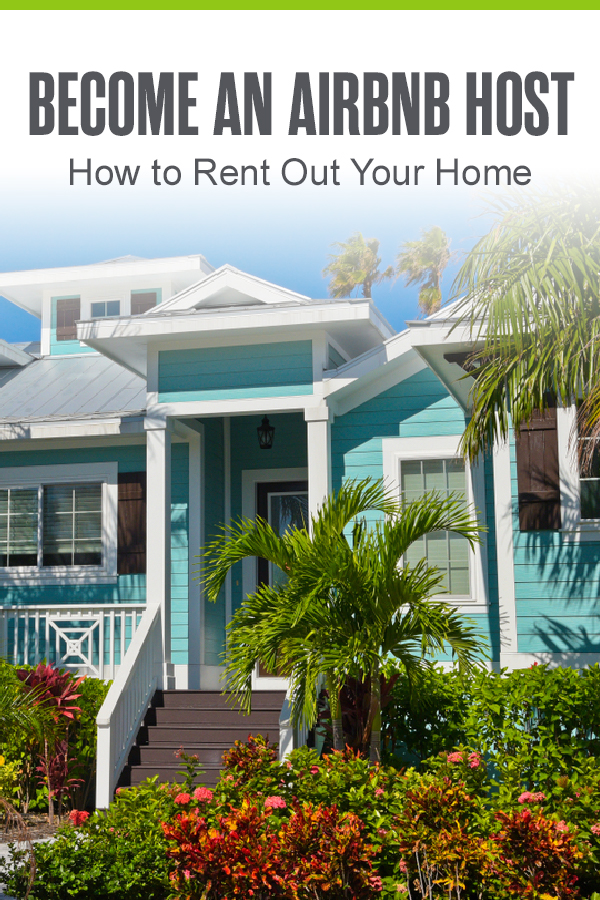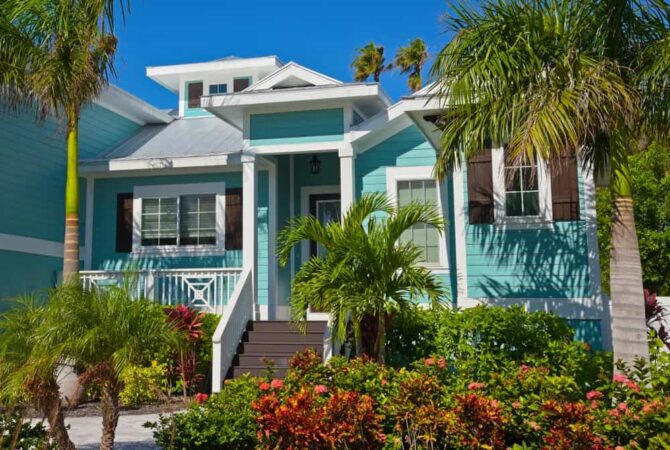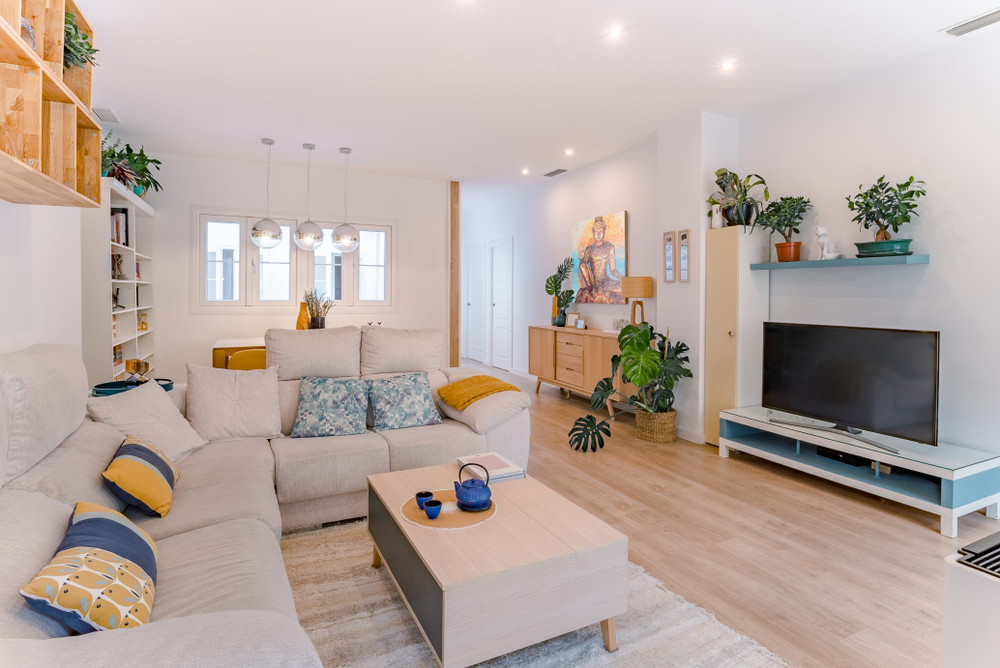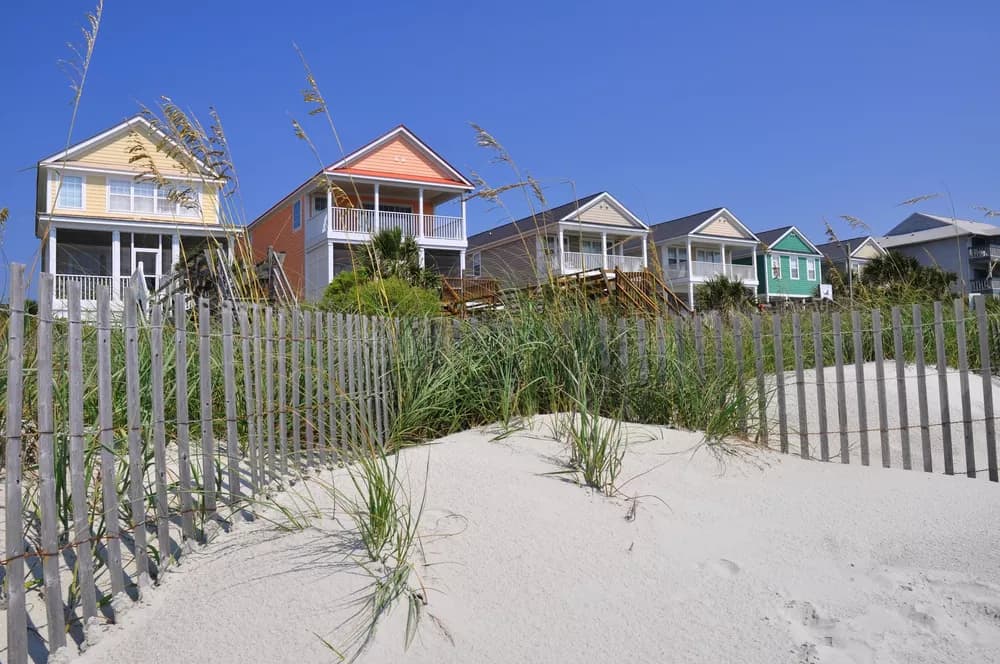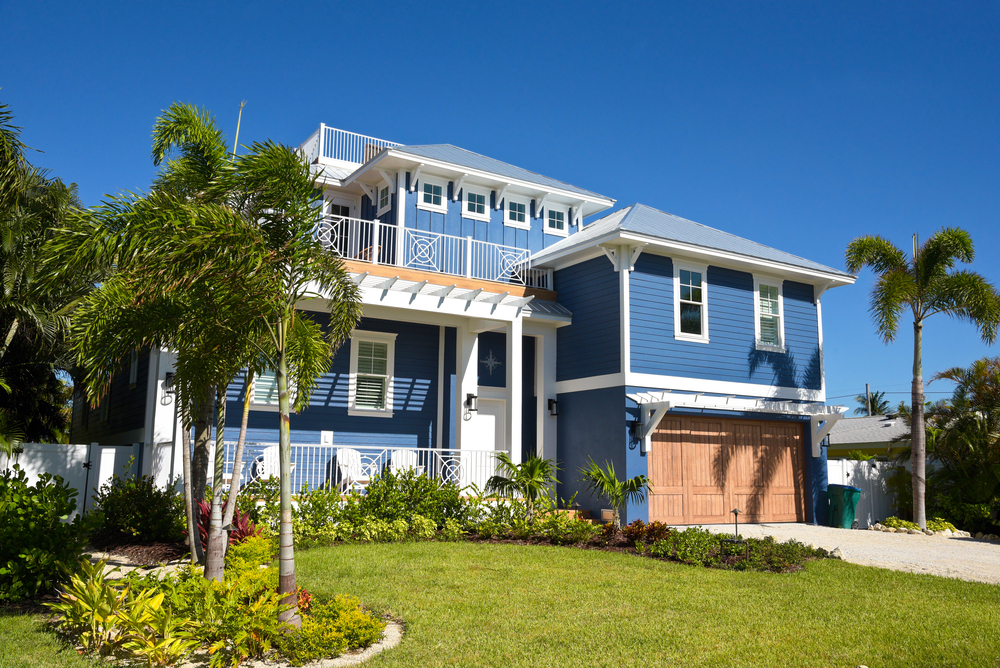Wondering what it takes to become an Airbnb host? If you have a spare bedroom, vacation home, condo, or other type of property, renting out your space to travelers is a great way to earn some extra money. Learn how to get started hosting on Airbnb with this beginner’s guide!
What Is Airbnb?
With listings in over 200 countries, Airbnb is one of the world’s leading marketplaces for booking vacation rentals. By signing up through the website or the smartphone app, you have the opportunity to experience unique travel accommodations or become a successful host by renting out your own space!
How to Get Started with Airbnb
If you’re interested in hosting guests, getting started on Airbnb is simple. Follow these steps, and you’ll be on your way to renting out your space to travelers and earning additional income in no time.
Do Your Legal Research
It’s important to do some research to better understand property laws before you become an Airbnb host. For instance, if you rent your property from a landlord, you’ll need to get their permission before listing the space. Depending on where you live, there may also be legal restrictions on short-term rentals, such as requirements regarding housing standards or zoning rules.
Get to Know the App & Website
Before you begin the listing process, spend some time on the Airbnb app and website to learn more about how it works. Explore the various features and take a look at some existing listings to inspire your own future rental property. Another place that’s helpful for new hosts is Airbnb’s Community Center. Here, you can read answers to commonly asked questions and tips from other hosts!
Evaluate Your Location
Be sure to consider the location of your potential Airbnb space—is it in an appealing area? Even if you’re not located in one of the best Airbnb cities in America, properties that are close to popular tourist attractions and trendy establishments in your town or city will be likely to attract bookings. Researching other properties in the area can also indicate how well your Airbnb location would compete. Evaluating your location can help you determine your target audience, allowing you to better capture the people most likely to book your space. For example, a lakeside cottage might be great for couples or families, while a modern downtown apartment could cater to young professionals and solo travelers.
Prepare Your Space
Whether you’re using your primary residence or a different property as a rental, it’s important to know how to prepare your space for Airbnb guests. Start by stocking up on Airbnb essentials. This includes basic kitchen items like pots, pans, a coffeemaker, and silverware, as well as bathroom items like toilet paper, travel-sized shampoos, conditioners, soaps, clean linens, and towels. Make sure the heating and air conditioning work properly, especially during seasons with extreme temperatures. Since many of your guests will likely be searching for restaurants, attractions, and things to do while they’re in the area, treat WiFi as another must-have Airbnb amenity. Lastly, make the check-in and check-out process safe and easy by installing smart locks so guests can lock and unlock the door with a personalized code.
Create Your Airbnb Listing
After you’ve set up an Airbnb profile, listing your space is completely free! You’ll be asked to select what kind of space you’re hosting—is it a house, apartment, or other unique space? Then, establish the type of property it is, such as a cabin, beach house, tiny home, or other dwelling. Additional questions you’ll answer before moving forward are how many guests you can accommodate, the number of bedrooms and bathrooms, and a few further details regarding amenities. This is also when you’ll select an Airbnb cancellation policy stating when guests can cancel their reservations and still receive a whole or partial refund.
Choose Your Own Schedule
One benefit of hosting is that you make your own schedule. Airbnb allows you to make your listing available from three months up to two years from the current date, and you can always make scheduling adjustments in your profile settings if your availability changes. Additionally, Airbnb offers guides on how to manage your calendar, including advice on how much time to set aside between guests for cleaning and other responsibilities. You can even sync your calendar with other websites to keep yourself organized!
Set Your Own Prices
When it comes to setting a price for your rental, you get to decide what you charge. Airbnb offers a few pricing options—including a default nightly price, a “Smart Pricing” option that automatically changes the nightly rate based on demand in your area, and a custom pricing option that allows you to set the price. By researching the listing prices of other Airbnb hosts in your area, you can develop a competitive pricing strategy and make your listing stand out.
Establish Airbnb Rules & Expectations
As an Airbnb host, you can set the rules and expectations for guests. Some things to think about are whether or not you’ll allow pets, if there will be a curfew, noise levels, or if you’ll allow extra guests on the property. While you don’t want to go overboard on rules, it’s important to set clear boundaries for your guests—especially when it comes to checking in and out, as well as any activities that could damage the property, like smoking indoors.
Consider Hiring a Hosting Team or Co-Host
Hosting an Airbnb is a big job that can sometimes be challenging, so be ready to budget your time wisely. Airbnb host responsibilities that demand your time include:
- Vetting potential guests
- Communicating with guests
- Checking guests in and out
- Cleaning or directing professional cleaners to the property
- Handling maintenance tasks and unexpected issues
Depending on the size of your property and how often you choose to host, you could spend a few hours a week managing these duties, or several hours at a time on days where you have to prepare the property for your next guests. If this sounds overwhelming, don’t worry—you can always bring in a hosting team or co-host! Hosting teams are groups of people who manage your listing on your behalf, while co-hosts are trusted individuals who share hosting responsibilities with you to lighten your load and help operations run smoothly.
Types of Airbnb Rentals
There are four different types of home rentals you can choose to list on Airbnb:
Private Room
A private room is a designated space in your home for your guests. This means that, as a host, you may interact with travelers during their stay, and your bathroom and living spaces may be shared. Private rooms are great for solo travelers or anyone looking for a budget-friendly stay—just be sure to set clear expectations for guests in your listing.
Shared Room
Shared rooms on Airbnb are rooms with two or more beds where guests will be sharing the same sleeping area. These are popular among younger, more flexible travelers who enjoy meeting others, as well as those looking for more affordable accommodations.
Hotel Room
An Airbnb hotel room is a listing that is located inside a hotel, bed and breakfast, or boutique property that is partnered with Airbnb. These listings blend all the typical services of a hotel with the more personable feel that people expect from an Airbnb. Business travelers and other people who appreciate the convenience of hotel amenities but are looking to avoid higher price points often seek out these listings.
Entire Place
If you choose to list your entire place to rent, travelers will have the whole home, condo, or apartment to themselves and therefore won’t share space with you or other guests. Entire place listings are popular among families, people traveling in larger groups, and those who want added privacy.
Set Your Airbnb Listing Up for Success
Once you decide what kind of space you’ll be renting out on Airbnb, it’s time to work on creating a prime vacation rental listing that will attract guests.
Take High-Quality Airbnb Photos
Listings with high-quality photos are more likely to get booked because beautiful images get your rental noticed by travelers. Airbnb recommends taking photos in landscape format with natural lighting for best results. You can take pictures on your smartphone or hire a photographer to get the best shots of your space. Be sure rooms are clean, decorated, and inviting to give renters the best idea of where they’ll be staying.
Write a Detailed Airbnb Description
Take time to research how to write an Airbnb description so your listing appeals to potential guests. Give your place a fun, exciting name to grab the attention of travelers, explain all the details of your home, and let people know what there is to do in the neighborhood and close by. Additionally, inform guests what amenities they’ll be able to access during their stay and how much contact they’ll have with you. Your description is an opportunity to tailor your property’s features to your target audience to better capture their attention as they’re looking for places to stay. If your property is a niche rental—such as a themed Airbnb—or otherwise features a distinct design, be sure to highlight that in your description, as well.
Build Positive Airbnb Reviews
Once your listing is live and you’ve had a few bookings, work on receiving genuine, positive reviews from your guests. As you build a history of good reviews, your listing will appear higher in searches for Airbnbs in your area. Drum up positive responses by writing your own reviews for your guests, and send a check-out message that thanks them for their stay and requests a review if they enjoyed their time. If you do receive any negative reviews from guests, publicly respond to them and take their feedback into account for the future. Doing so will tell potential guests that you’re open to criticism and willing to make changes to improve their stay.
Airbnb Costs, Pricing, & Earnings
There’s a lot that goes into the overall financials of hosting your home on Airbnb. Here’s what you need to know about associated costs, pricing your rental, and how to earn money before you list your property on Airbnb.
Anticipate Airbnb Hosting Costs
While being a host will bring in some extra earnings, there are some Airbnb fees and charges that come along with it. Though listing your space is free, Airbnb does charge a standard hosting fee of 3% once a reservation has been made. Your other costs will mostly come from stocking and maintaining the amenities you provide to guests, your utility bills, and paying your co-host if you have one.
Set Pricing with Market Research
When pricing your Airbnb property, conduct some local market research beforehand. This can be done with AirDNA, which will give you analytics on short-term rentals in your area, so you can make the best decision on how to set your daily rates. Remember that demand may increase during specific seasons, allowing you to adjust your listing prices accordingly. Give your guests the best value for their stay and a reason to choose your Airbnb over a hotel or other rental property.
Make Money with Bookings
Once you’ve received a booking, your guests will be charged before their arrival. Airbnb will then release your earnings through PayPal or direct deposit 24 hours after check-in. Payment processing time varies depending on which payout method you choose.
Don’t Forget About Taxes for Airbnb
There’s no uniform tax policy for Airbnb hosts. Your policy will depend on where you live and your city’s laws, and this will determine whether you need to collect or pay in order to host. If you need to collect tax fees from guests, let them know before booking or include the price in your listing. Additionally, you’ll be responsible for reporting your income to the IRS. Airbnb recommends hiring a tax professional for these matters.
Expert Airbnb Hosting Tips
Want to be a top destination for Airbnb travelers? Here are some expert tips to improve your hosting skills so you can become a Superhost on Airbnb!
Be Available to Your Guests
One of the most important Airbnb hosting tips is to make yourself available to your guests during their stay. They’ll appreciate you being responsive if they have any questions about your property, ask for recommendations of things to do in the area, or have any special requests. If you go the extra mile for travelers, you’re more likely to get shining reviews and attract future guests!
Hire Airbnb Cleaning Services
Consider hiring a professional cleaning service to clean your property after each stay and get it ready for the next guest. Not only will this take some of the work off of you, but you can count on a professional to do a thorough job so your rental will be in top shape for the next visitors.
Purchase Extra Linens & Towels
Having extra linens and towels on hand is helpful for a couple of reasons. First, if a guest needs extra blankets or more towels for any reason, they can easily grab them out of a spare closet. Second, this can shorten your clean-up time after your guest checks out because you’ll have fresh linens and sheets ready to replace used ones.
Go Above & Beyond with Additional Perks
After stocking your home with Airbnb must-haves, consider offering thoughtful extras so visitors feel even more at home. Create a welcome book that contains details about recommendations for things to do in the area, and leave a basket of snacks and goodies for your guests to enjoy as they check in. Provide appliances like a refrigerator and microwave so guests can easily prepare meals, or keep a stocked kitchen for their convenience. Help visitors stay entertained in their down time by providing access to cable TV or popular streaming services. And if your rental is pet-friendly, make an effort to provide amenities like food and water bowls, beds, and pet waste bags to appeal to pet owners.
Ensure Your Rental is Safe for Guests
Making your guests feel comfortable means taking measures to keep them safe. Equip your Airbnb with safety features including smoke and carbon monoxide detectors, fire extinguishers, first-aid kits, and secure entry systems. Ensure all light fixtures work properly and have fresh bulbs so your guests can see well and avoid accidents. In addition, include a document that details information on how to access important safety materials and any relevant emergency contacts. Finally, review Airbnb’s safety tips to help prepare an emergency plan in case of an event like a natural disaster.
Regularly Update Your Airbnb Decor
After you’ve booked a few stays and have gotten the hang of hosting, invest further in your rental property by adding more home decor. Look into Airbnb decorating ideas and consider implementing a cohesive theme or style, such as boho or minimalism. Research trending home designs and keep your target audience in mind to help your rental stay relevant and attract future visitors. This will help create a more memorable experience for guests while also adding value to your property!
***
Need somewhere to store your belongings when renting your home on Airbnb? Extra Space Storage has self storage locations nationwide that can help you prepare your home for guests. Find secure storage near you!
